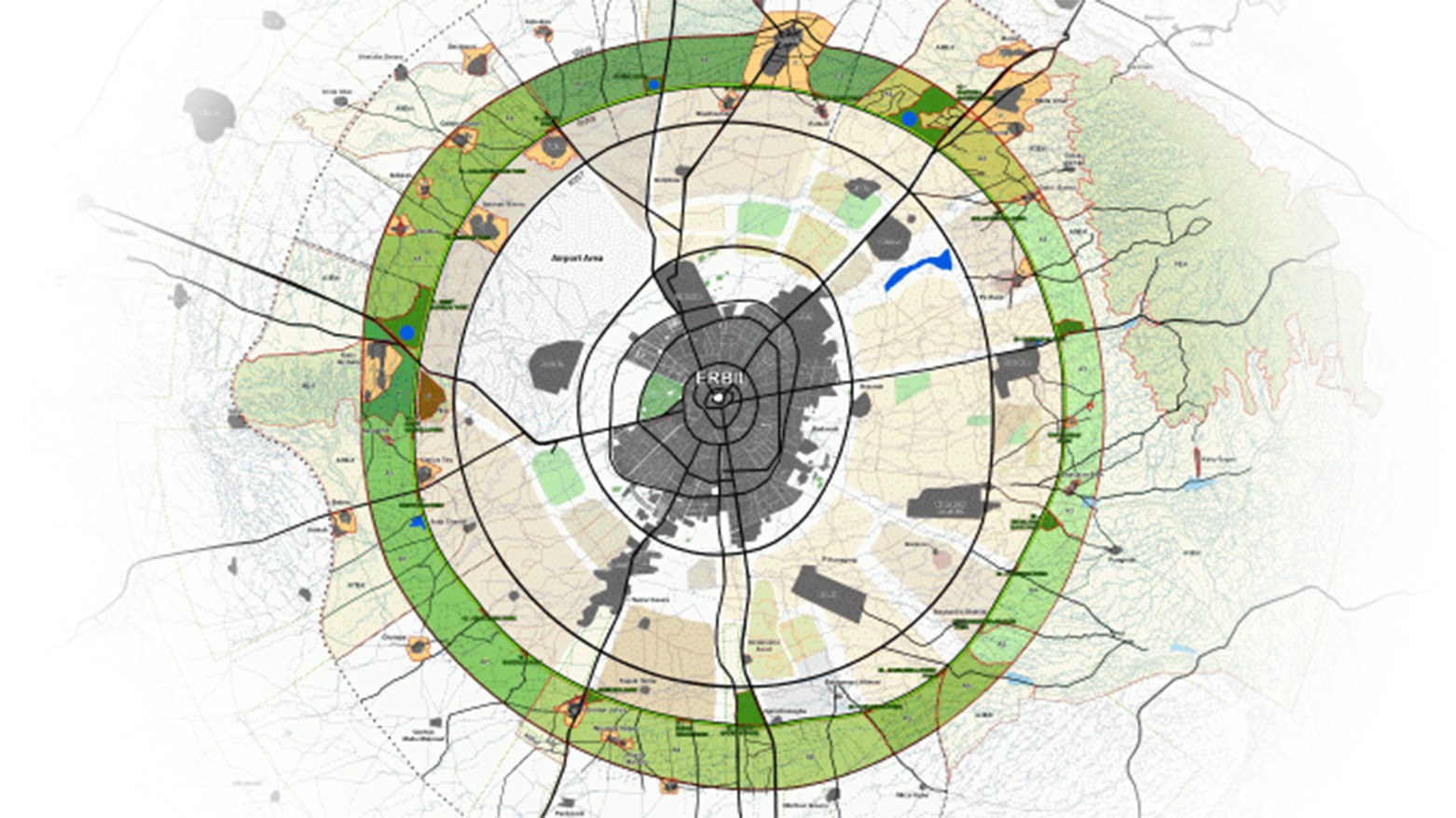Erbil’s Green Belt and Runaki Projects: Pioneering Environmental Leadership in Iraq
Ongoing “visible” and “invisible” forest initiatives aim to cut emissions and expand green cover, delivering environmental benefits equal to planting 31 million trees.

ERBIL (Kurdistan24) — The Kurdistan Regional Government’s (KRG) two flagship forestry projects — the Green Belt of Erbil and the Runaki Project — are steadily advancing, already positioning the region as a pioneer in environmental protection and sustainable development in Iraq. Together, their combined impact is equal to planting more than 31 million trees.
The Green Belt of Erbil, designed as a protective “visible forest” around the capital, has been under development for some time. Once completed, it will extend 92 kilometers in length and two kilometers wide, with seven million fruit-bearing trees such as olive and pistachio.
Covering 184 square kilometers, the forest is expected to absorb nearly 210,000 tons of carbon dioxide annually while boosting agriculture and job creation.
“With the creation of this greenbelt, Erbil’s environment, air quality, and overall livability will reach a new stage, while also enhancing the city’s visual appeal,” Omed Khoshnaw, the governor of Erbil told a press conference in August.
The governor noted that while the entire project might not be completed at once, construction is divided into zones, with work already underway in one area.
Parallel to this, the Runaki Project is creating an “invisible forest” by gradually eliminating thousands of private diesel generators, long a major source of pollution in the Kurdistan Region.
launched in October 2024, aims to provide 24-hour electricity to all households and businesses in the Kurdistan Region by the end of 2026. As of mid-2025, over 2.7 million people across major cities—including Erbil, Sulaymaniyah, Duhok, and Halabja—have benefited from this initiative.
The project has led to the decommissioning of more than 2,500 private diesel generators, significantly reducing noise and air pollution. By the project's completion, the KRG plans to phase out over 7,000 generators, further enhancing the region's environmental quality and energy reliability.
The transition to cleaner energy is projected to cut 600,000 tons of CO2 emissions each year, equivalent to planting 24 million trees without physically sowing a single seed.
When combined, the two initiatives offer huge environmental benefits, underscoring the KRG’s long-term commitment to climate action.
Subject matter Experts say the KRG’s dual forestry strategy represents a rare example in the Middle East of pairing afforestation with emission-reduction reforms.
Regional Context: Kurdistan as a Climate Leader
The Kurdistan Region’s projects come at a time when Middle Eastern countries are launching major environmental initiatives in response to global warming and desertification. Saudi Arabia’s “Middle East Green Initiative”, for example, seeks to plant 50 billion trees across the region, while the United Arab Emirates — host of COP28 in 2023 — has pledged to achieve net-zero carbon emissions by 2050.
In comparison, the Kurdistan Region’s forestry and clean-energy reforms, while more localized, represent an unusually ambitious program within Iraq. The federal government in Baghdad has often struggled to advance nationwide afforestation and climate projects, hindered by political divisions and limited resources.
This has allowed the KRG’s programs to stand out as practical, measurable efforts that directly improve air quality, energy efficiency, and agricultural resilience.
Economic and Social Benefits
Beyond environmental impact, the cultivation of millions of olive and pistachio trees is expected to strengthen local farming economies, diversify exports, and create new employment opportunities.
Phasing out diesel generators, meanwhile, will reduce respiratory illnesses linked to air pollution, lower household energy costs, and foster long-term stability in the power sector.
“These are not just projects, they are a vision for the future,” KRG officials have stressed. “One forest is visible to the eye, while the other is felt through the cleaner air we all breathe.”
If sustained and expanded, experts say the Kurdistan Region’s approach could become a regional model for balancing economic growth with ecological responsibility — an image of resilience and progress in a part of the world often associated with conflict and instability.